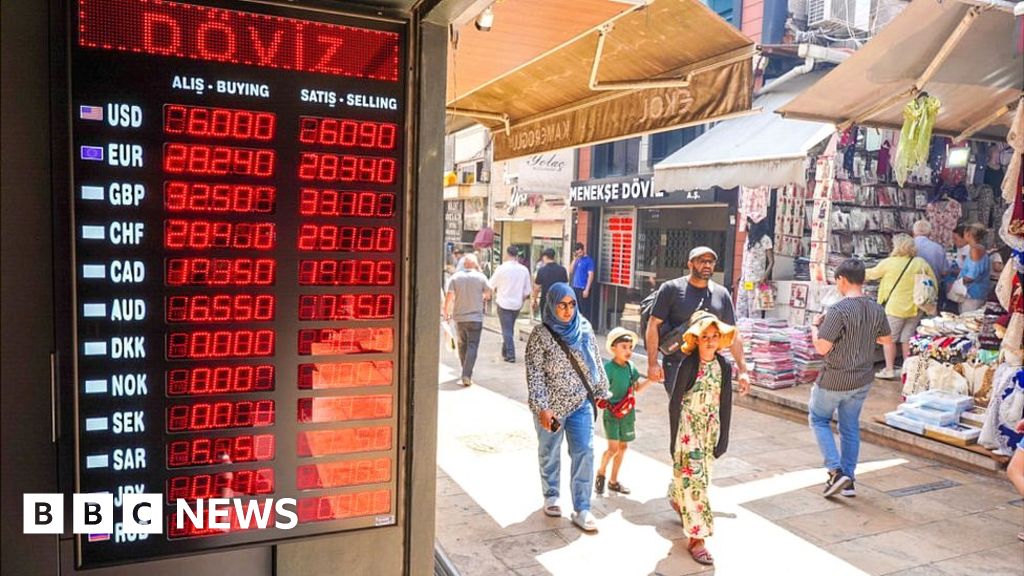November 23, 2023
Image credit: Getty Images
Image caption: President Erdogan has previously opposed raising interest rates to combat high inflation.
Turkey’s central bank has raised its key interest rate to 40 percent as part of a concerted campaign to tackle soaring inflation in the country.
The increase from the previous 35% was much higher than expected.
But Turkey’s central bank suggested interest rates were approaching the level needed to start curbing inflation.
The inflation rate, which measures the rate of price increases, reached 61.36 percent in October and is expected to rise further to peak at around 70-75 percent in May next year.
While central banks around the world have been raising interest rates to curb rising prices, President Recep Tayyip Erdogan has previously resisted economic orthodoxy, arguing that higher interest rates lead to higher prices.
But since his reelection in May, his stance has changed.
The central bank, under its new governor, Hafiz Geyer Erkan, a former Wall Street banker, has been allowed to raise interest rates to 40% from 8.5% in a bid to raise borrowing costs and slow price growth.
“The pace of monetary tightening will slow and the tightening cycle will be completed in a short period of time,” the central bank said.
He added that interest rates would remain high “for as long as necessary to ensure sustained price stability.”
Turkey’s economy grew dramatically during the early days of President Erdogan’s administration but has struggled in recent years.
The central bank has previously pursued a policy of lowering interest rates despite high inflation, which led to the currency crisis in 2021. The government introduced a system to protect lira-denominated deposits from currency depreciation.


